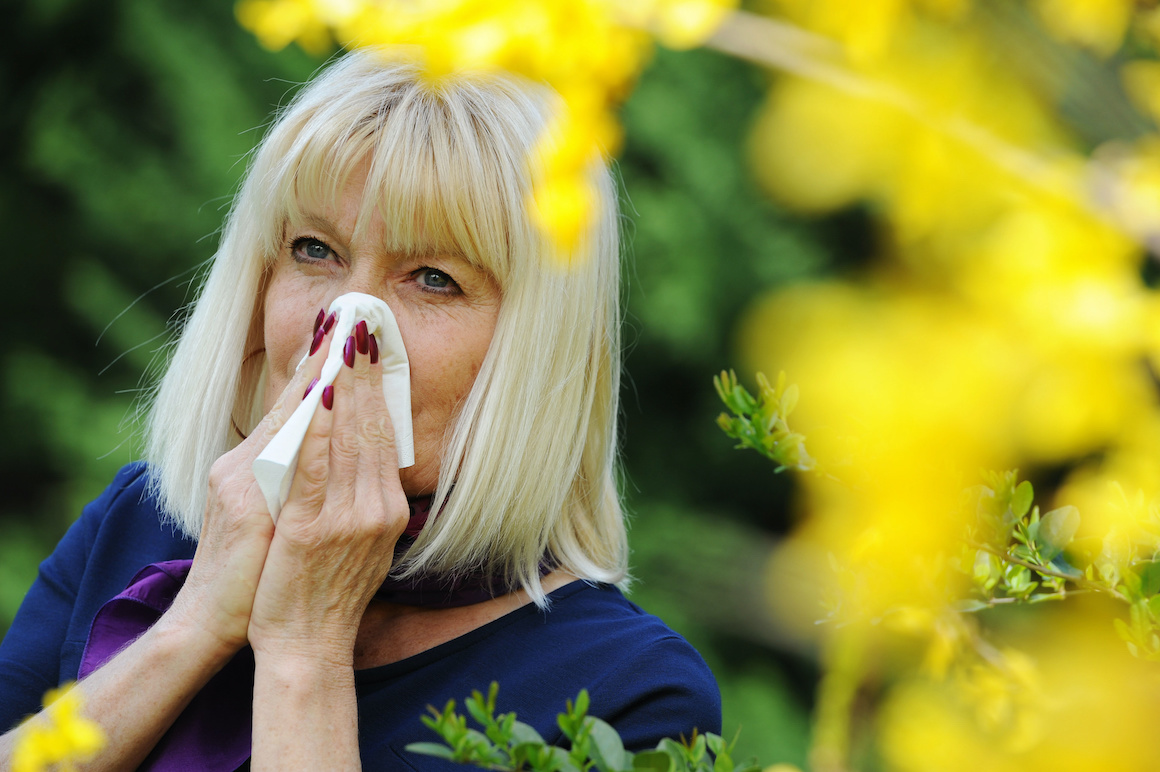Some 50 million Americans suffer from allergies of one sort or another, according to the American College of Allergy, Asthma, and Immunology. If you have allergies, of course you know it—and maybe everyone around you does, too, as you sneeze, wheeze, itch and complain.
But how much of what you know about allergies is truth, and how much is myth? Allergists say misconceptions about allergies abound…and could be life threatening. We put this quiz together with their help plus a search of recent research. Let’s see how smart you are!
-
If you’ve gotten to adulthood without allergies, chances are you are ”home free.” True or False?
A. Mostly False. Not necessarily. Researchers who polled more than 40,000 adults of all ages found that about 10% had a food allergy, and about half of those said they developed at least one new food allergy in adulthood that they did not have as a child. The researchers conclude that allergies that start in adulthood are common in the U.S. among adults of all ages. Topping the list: shellfish, milk, peanuts.
“Even people in their 70’s can develop allergies for the first time,” says allergist Kevin McGrath, MD, a spokesperson for the American College of Allergy, Asthma and Immunology and acting division chief of allergy at St. Francis Medical Center, Hartford, CT.
-
If you have a history of severe allergic reactions and carry an epinephrine auto injector (often called by the brand name, EpiPen), once you inject it after a severe allergic reaction you can skip going to the doctor as the problem’s solved. True of False?
A. False! Absolutely not true. “You should then go to the ER,” says Mark Holbreich, MD, an allergist in Indianapolis, IN and a member of the American Academy of Allergy Asthma and Immunology. “Three or four hours later, symptoms can come back.”
“You definitely have to go to the ER or call 9-1-1,” McGrath agrees. He advises people always to carry two injectors. Up to 10% of people might need a second dose, he says. And you might miss your ”target”—the thigh—on the first attempt.
-
Do allergies that started in childhood or adulthood tend to decline with age? True or False?
A. Partially true, says Punita Ponda, MD, assistant chief of allergy and immunology at Northwell Health in Great Neck, NY. “The very old do have fewer allergies, but allergies can increase from infancy to adult life depending on the person,” Ponda says.
In Holbreich’s experience, however, he finds many people do suffer less with allergies once they hit their 60’s.
-
Allergies aren’t ”equal opportunity” ailments—some racial or ethnic groups are affected more. True or False?
A. True, Ponda says. “Depending on the allergic disease we are talking about, there can be predispositions that are ethnic, gender-based or some racial.” For instance: Black Americans (as well as older adults) have the highest rates of death due to allergic reactions to medicine, food, or unknown allergens, says the Asthma and Allergy Foundation of America, with allergic skin conditions such as eczema and dermatitis. In another” href=”https://www.physiciansweekly.com/racial-differences-in-pediatric-food-allergy”>analysis,<> African-American and Hispanic children had higher rates of severe food allergies compared to whites.
This article offered by Senior Planet and Older Adults Technology Services is for informational purposes only and is not intended to substitute for professional medical advice, diagnosis, or treatment. Always seek the advice of your physician or other qualified health provider with any questions you may have regarding any medical condition. If you think you may have a medical emergency, call your doctor or 911 immediately.
